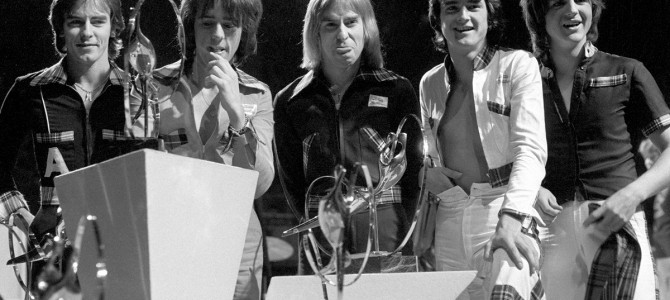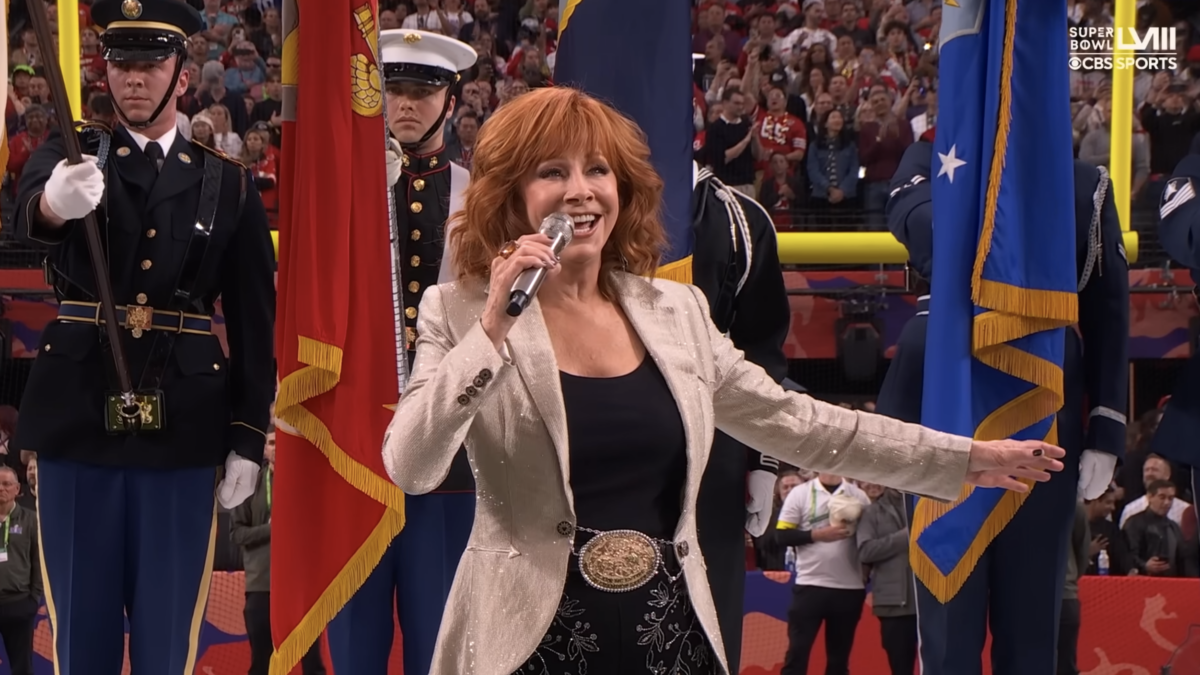
I’ve liked the Bay City Rollers since I was a kid. My aunt grew up in Bay City, Michigan—no, she didn’t know Madonna: I’m pretty sure that’s the first question my super-fan mother ever asked her—and in those halcyon days when I would hear “Saturday Night” at the skating rink I always assumed they also hailed from the Wolverine State. I was wrong: what really happened is that an Edinburgh group called The Saxons changed their name after throwing a dart at a map of the United States.
The rest is history: the solid cover of The Gentrys “Keep on Dancing,” the breakthrough with “Remember (Sha La La La),” numerous hits—“Shang-a-Lang,” “Bye Bye Baby,” “Give a Little Love”—and even their own show on Britain’s ITV. They had the most dedicated teenage fan base since The Beatles: the “Tartan Horde” wore kilts and scarves in imitation of their idols and were so obsessed that when Nick Lowe wrote “Bay City Rollers, We Love You” as a wheeze to get out of a record contract, they adopted this mocking pastiche of their favorite band’s neo-early Monkees roller-core as a kind of anthem.
They were huge in America, too, and Japan. “Rollin’” is the kind of record you can usually get mint for $0.50 in any bargain bin, but Japanese pressings in good condition with the obi (that neat sash you find on LPs from the Land of the Rising Sun) intact run at least $50. The stuff wasn’t dazzlingly original or particularly deep, mind you, but if you tell me you’d rather hear “Welcome to the Machine” than “Marlena,” you’re either a dork, a liar, or both.
Except the rest isn’t history, because almost everyone, myself included until very recently, has no idea that in 1978 they changed their name again, this time to Rollers, and got a new lead singer, the South African Duncan Faure. Along with the definite article and Aunt Tammy’s hometown went their bubble-gum stylings, which were replaced with a straight-ahead power pop aesthetic: hand-claps and pseudo-scatting were out; Badfinger-inspired hooks and Cars-esque synths were in.
As career trajectories go, this kind of about-face was pretty common in the late ’70s, down to the change in front man—think of Journey, for example, who were awful before Steve Perry and even worse afterward. The difference is that for Rollers, it worked.
They made three records with the new lineup, the best of which is the last one, “Ricochet,” released to no fanfare in 1981. When I say “no fanfare,” I really mean it: it wasn’t even distributed in the United States. Presumably the kids who had been donning tartans and tapping their feet to “Be My Baby” had grown up and their younger sisters were swooning over Shaun Cassidy instead. The people who made “Cheap Trick at Budokan” go triple platinum would never have even thought to tune in.
It’s a real shame. As a specimen of de-bluesified, sharp-riffed, harmony-laden, absurdly catchy rock and roll, “Ricochet” is a masterpiece worthy of Big Star or Badfinger. There were already intimations of the new direction toward the end of the Les McKeown era, especially in the arrangements for a track like “Rock and Rock Love Letter,” but the lyrics were still childish (“I’m going to rock and roll / Until my jeans explooooode”) and the band sounded bored. Here they are very grown-up and occasionally very melancholy.
“Ricochet” deserves to be a classic rainy day cheer-up record, but if you like your pop simple and glacé, with nasally Lennon-inspired vocals and clean, quietly biting guitars, it will sound good regardless of the weather. “Doors, Bars, Metal,” the album opener, is pure “Odgens’ Nut Gone Flake”-era Small Faces brilliance, complete with thumping barrelhouse piano. I can’t hear more than 10 seconds of it without lighting a cigarette.
“Life on the Radio” is a nostalgic anthem, a beautifully wistful paean to the medium: “The best friend, my faithful, a dear old heart / Tuning in on you”—this is what “Video Killed the Radio Star” would have sounded like if The Buggles were sincere. “Roxy Lady” might have been a hit if Dire Straits had played it. “Ride” could have been sandwiched between “Hello Again” and “Looking for Love” on “Heartbeat City.” “No Doubt About It” is basically the same song as Toto’s “Hold the Line,” except better and not a number-five Billboard hit played to death on classic-rock radio.
At the very least, some of these tunes should have appeared on “Yellow Pills,” the compilation series that did for Alex Chilton wannabes in the early ’90s what “Nuggets” had done for garage and “C-86” for jangle pop. Instead, they collected dust in sale bins and somehow found their way onto Ebay.co.uk. The album never made it to cassette, and it was only reissued on CD a few years ago by a small British outfit called 7Ts Records. You won’t find it on Spotify, and only a few of the songs have ever been uploaded to YouTube.
Do yourself a favor and order “Ricochet” on vinyl: it’s cheaper than the CD pressing, which sounds a little thin even on my amazing Sony PlayStation SCPH-1001 audiophile rig—and play it at your next party. You’ll totally be able to one-up that guy you probably shouldn’t have invited when he starts prattling on about how The Monkees are an amazing band and “Pisces, Capricorn, Aquarius, & Jones Ltd.” is the best American psychedelia album that isn’t called “Forever Changes” (he’s not wrong, but everybody knows that).
“Saturday Night” never died, folks: it just became Sunday afternoon.









